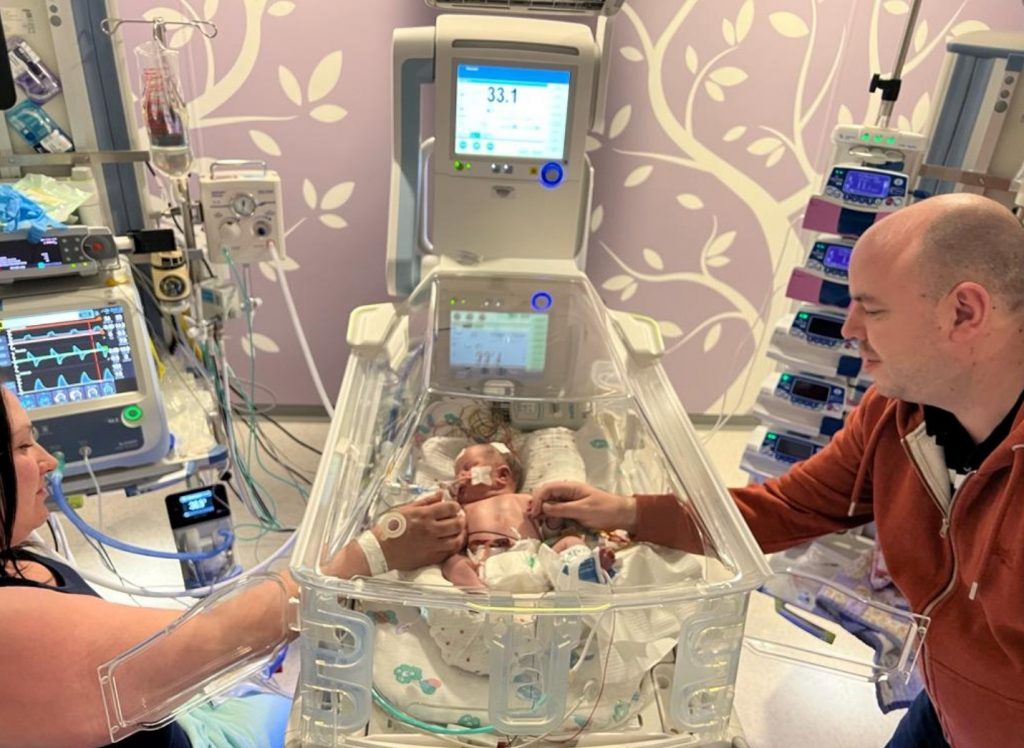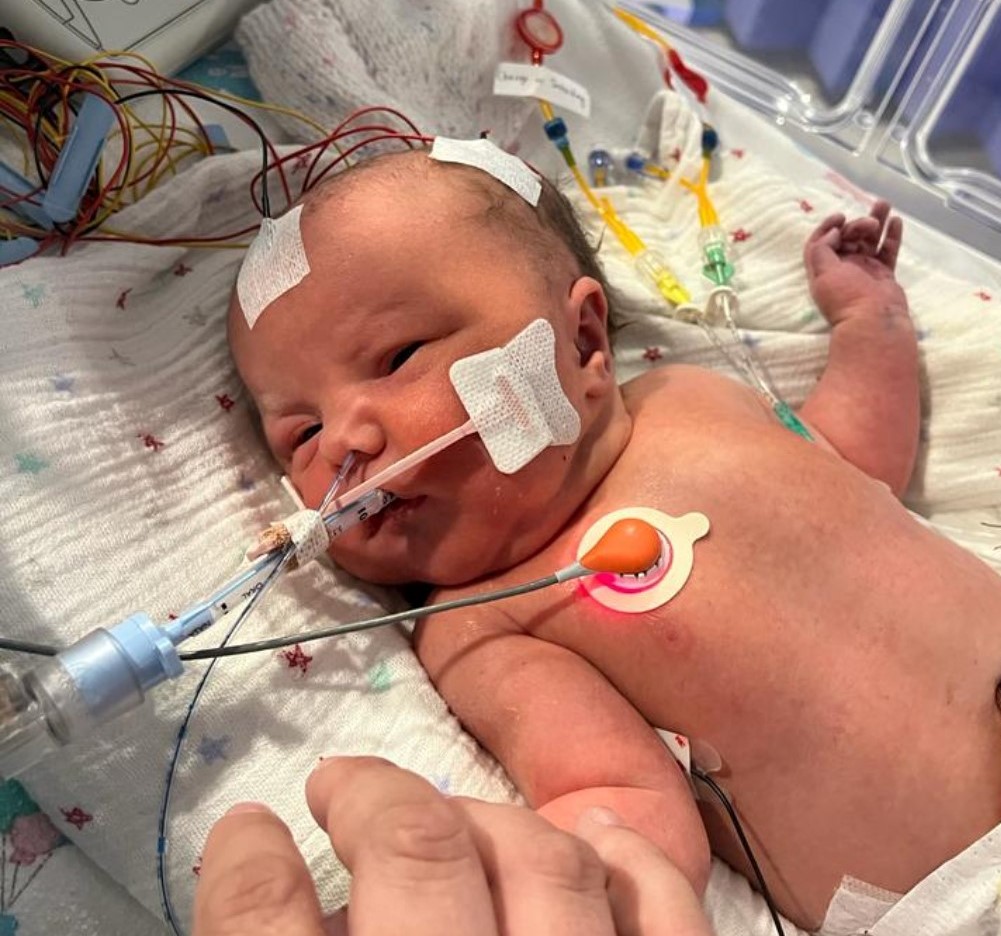
Three-month-old Elsi was born at 34 weeks. She was baby number six for mum, Lisa, and as several of her children had been born early, it wouldn’t have come as such a great surprise. But this pregnancy felt different.
Lisa noticed early on that this baby was moving far less than her others had. From 26 weeks there was no movement at all and when Lisa went in for a check, her blood pressure was worrying high. Lisa was monitored regularly from that point on but the situation got progressively worse until at 34 weeks she was admitted onto the high-dependency unit.
Lisa says: “I was put on medication which stabilised things for a while but things went downhill rapidly at one point and I genuinely felt like I was dying. My blood pressure was 200/118 which is ridiculously high, and I was rushed for an emergency c-section.”
Baby Elsi was unresponsive at birth. The crash team started working on her immediately but she didn’t take her first breath until she was three minutes old.
 Elsi was taken off in a transport incubator to the neonatal intensive care unit and placed in an incubator. After attempts to get her to breathe unaided failed, she was put on a ventilator. She also had severe hypotonia (low muscle tone) and no reflexes. In fact the only part of Elsi’s body that moved at all was her fingertips. Showing no ability to swallow either, she was tube fed.
Elsi was taken off in a transport incubator to the neonatal intensive care unit and placed in an incubator. After attempts to get her to breathe unaided failed, she was put on a ventilator. She also had severe hypotonia (low muscle tone) and no reflexes. In fact the only part of Elsi’s body that moved at all was her fingertips. Showing no ability to swallow either, she was tube fed.
Over the following days, Elsi was sent for brain scans and was tested for various neurological,metabolic and genetic conditions. But everything came back inconclusive. Lisa and husband, Chris, begged for some kind of reassurance that they’d be able to take their baby home, but no-one could give it. Unable to find even a reason for Elsi’s symptoms, the NICU team only had her current condition to go on and the prognosis looked bleak. Elsi’s life was being supported entirely by machines. Her devastated parents were told to prepare for the worst.
But, miraculously, as it turned out, all little Elsi needed was time. Step by tiny step, she started to show signs of improvement. Each day, she’d move a little more or respond a little more and vitally her oxygen needs started to decrease. Eventually she was able to move down from full ventilation to less invasive forms of ventilation until she was able to breathe entirely on her own. By nine weeks, Elsi had beaten all the odds and was well enough to go home.
Lisa says: “Elsi is still under the care of the children’s hospital as an outpatient and we’re still waiting on the results of more tests to try and diagnose her condition but she continues to progress every day. It’s frightening to think that, without the equipment that supported her in those first weeks, she wouldn’t be here. But it’s true and we couldn’t be more grateful for it. For our family, it’s invaluable because it’s given us Elsi.”
Our Tiny Lives Appeal aims to raise £300,000 to fund incubators, ventilators and transport incubators for the neonatal intensive care unit. To make a donation and help more babies like Elsi, click the button below.








